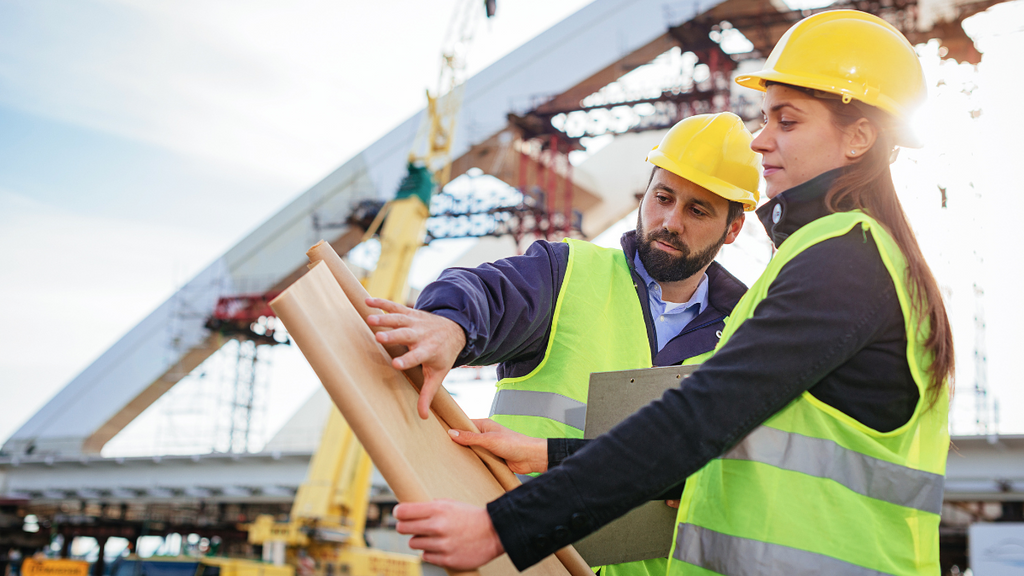The 10-Second Trick For Geotheta
The 10-Second Trick For Geotheta
Blog Article
Geotheta Can Be Fun For Anyone
Table of ContentsThe Only Guide for GeothetaThe 8-Second Trick For GeothetaThe Best Strategy To Use For GeothetaUnknown Facts About GeothetaThe smart Trick of Geotheta That Nobody is Talking About

They carry out website investigations, accumulate samples, carry out laboratory tests, and assess data to examine the viability of the ground for building jobs - Consulting Engineers. Based on their searchings for, geotechnical engineers provide suggestions for foundation design, slope stability, maintaining frameworks, and reduction of geotechnical dangers. They team up with other professionals, such as designers, structural designers, and construction teams, to make sure that geotechnical factors to consider are incorporated into the general job layout and application
By analyzing the actions and homes of soil and rock, they can determine potential geotechnical hazards such as landslides, soil negotiation, or slope instability. Their knowledge aids protect against failings or crashes that can jeopardize lives and building. Right here are some in-depth duties and obligations of a geotechnical engineer: Website Investigation: Geotechnical designers conduct site investigations to gather data on subsurface conditions.
They analyze the data to comprehend the residential properties and behavior of the soil and rock, including their strength, permeability, compaction qualities, and groundwater conditions. Geotechnical Analysis and Design: Geotechnical engineers examine the information accumulated throughout website investigations to examine the security and suitability of the website for building tasks. They do geotechnical calculations and modeling to review elements such as birthing capacity, settlement, incline stability, lateral planet stress, and groundwater circulation.
The Greatest Guide To Geotheta
Structure Style: Geotechnical designers play an important function in developing foundations that can safely sustain the intended framework. They assess the soil problems and load demands to determine the suitable foundation kind, such as shallow foundations (e.g., grounds), deep structures (e.g (https://trello.com/u/geotheta)., piles), or specialized strategies like dirt improvement. They take into consideration variables such as settlement limits, birthing ability, and soil-structure communication to establish optimal structure layouts
They evaluate construction plans, display website tasks, and perform area evaluations to validate that the layout referrals are adhered to. If unexpected geotechnical concerns emerge, they evaluate the circumstance and provide referrals for removal or adjustments to the layout. Danger Assessment and Reduction: Geotechnical designers examine geotechnical risks and risks related to the job site, such as landslides, liquefaction, or dirt disintegration.

Cooperation and Interaction: Geotechnical engineers function closely with various other experts included in a job, such as architects, architectural engineers, and construction groups. Efficient interaction and cooperation are important to incorporate geotechnical factors to consider into the overall task layout and building process. Geotechnical engineers supply technical proficiency, response queries, and ensure that geotechnical requirements are satisfied.
Geotheta Can Be Fun For Everyone
Here are some kinds of geotechnical engineers: Foundation Designer: Foundation designers focus on creating and analyzing foundations for frameworks. They assess the dirt problems, load needs, and site features to identify one of the most ideal structure kind and layout, such as shallow foundations, deep structures, or specialized methods like pile foundations.
They examine the variables affecting slope stability, such as dirt residential or commercial properties, groundwater conditions, and slope geometry, and create techniques to prevent slope failures and mitigate risks. Quake Designer: Quake designers concentrate on analyzing and designing frameworks to endure seismic pressures. They analyze the seismic danger of a website, evaluate soil liquefaction capacity, and establish seismic layout requirements to ensure the security and resilience of structures throughout quakes.
They carry out field testing, collect examples, and assess the gathered information to identify the soil homes, geologic formations, and groundwater problems at a website. Geotechnical Instrumentation Engineer: Geotechnical instrumentation designers concentrate on surveillance and determining the behavior of dirt, rock, and frameworks. They install and keep instrumentation systems that check aspects such as soil negotiation, groundwater levels, incline activities, and architectural displacements to assess performance and offer very early cautions of potential concerns.
The Main Principles Of Geotheta
They perform examinations such as triaxial tests, consolidation examinations, direct shear tests, and leaks in the structure examinations to collect information for geotechnical evaluation and style. Geosynthetics Designer: Geosynthetics engineers concentrate on the design and application of geosynthetic products, such as geotextiles, geogrids, and geomembranes. They utilize these materials to improve dirt security, enhance slopes, give drainage remedies, and control disintegration.
They tend to be investigatory people, which means they're intellectual, reflective, and curious. They are interested, methodical, rational, analytical, and logical. A few of them are additionally social, indicating they're kind, charitable, participating, individual, caring, practical, understanding, tactful, and friendly. Does this seem like you? Take our free career test to figure out if geotechnical engineer is just one of your top profession suits.
In the workplace atmosphere, geotechnical engineers utilize specialized software application devices to carry out computations, create layouts, and analyze information. They prepare reports, testimonial task specifications, interact with clients and staff member, and coordinate task tasks. The office setting supplies a conducive atmosphere for research, evaluation, and collaboration with various other specialists associated with the project.
The 45-Second Trick For Geotheta
They often check out project websites to conduct website investigations, examine geotechnical conditions, and collect data for analysis. These check outs entail taking a trip to various places, occasionally in remote or challenging surfaces. Geotechnical engineers may execute dirt tasting, conduct tests, and screen construction tasks to ensure that the geotechnical elements of the project are being implemented correctly.
Geotechnical engineers likewise work in specialized geotechnical laboratories. Geotechnical research laboratory engineers navigate to these guys work thoroughly in these environments, managing testing equipment, running instruments, and videotaping data.
Report this page